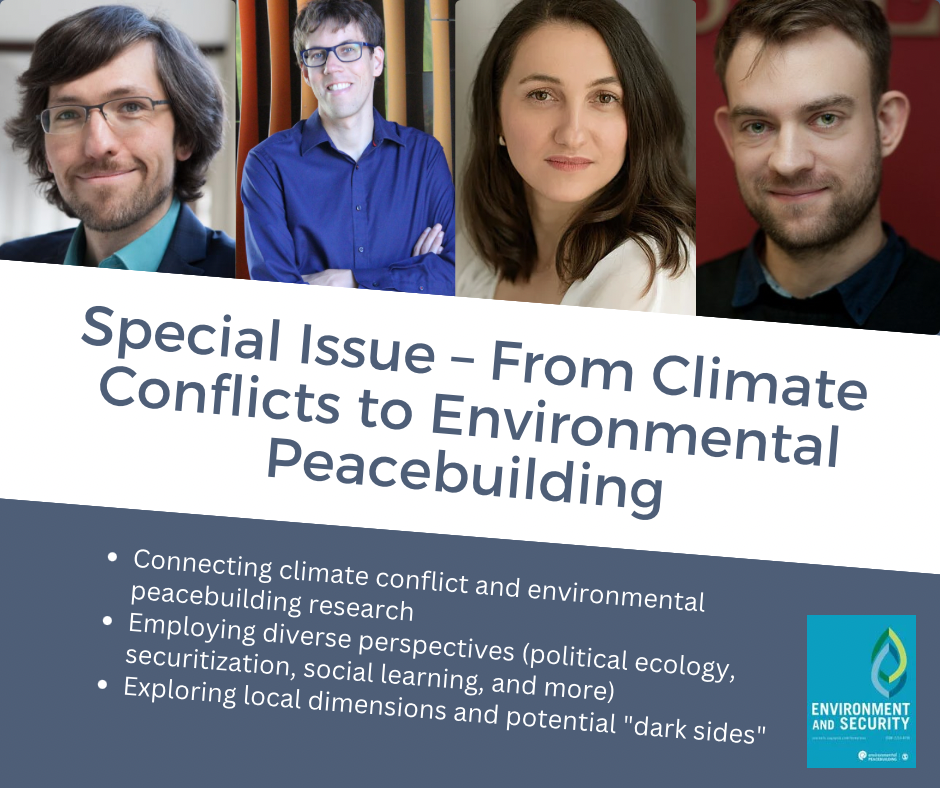The special issue – freshly published in Environment and Security – brings together two stands of research that have hitherto often been examined separately: climate-related conflict and environmental peacebuilding. By using varied theoretical perspectives (such as political ecology, securitization, social learning, and postcolonial approaches), the authors in this special issue provide innovative insights that cut across these divides. The papers particularly focus on the role of local actors, their networks, understandings, and identities, which are key for fostering a climate resilient peace.
The volume was edited by Jan Sändig, who co-coordinator of the Conflicts.Meanings.Transitions research network, together with Natalia Dalmer (Leibniz University Hannover), Tobias Ide (Murdoch University, Perth), and Anselm Vogler (IFSH, Hamburg). In their introduction to the special issue, they recap the literature gap, highlight promising theoretical perspectives, and explore the local dimensions, whilst also discussing potential “dark sides” of the local turn.
The collection comprises a set of great contributions that highlight pathways for the EU’s post-war reconstruction in Ukraine, strengths and gaps of climate security risk assessments, and the role of gender norms at the climate-conflict nexus. Moreover, authors within the collection show the importance of local networks for hosting climate migrants, the need for integrating varied knowledge practices on environmental conflict, opportunities for social learning from local communities, and the benefits of listening to indigenous voices for solving climate-induced water conflict.
Access the collection here


